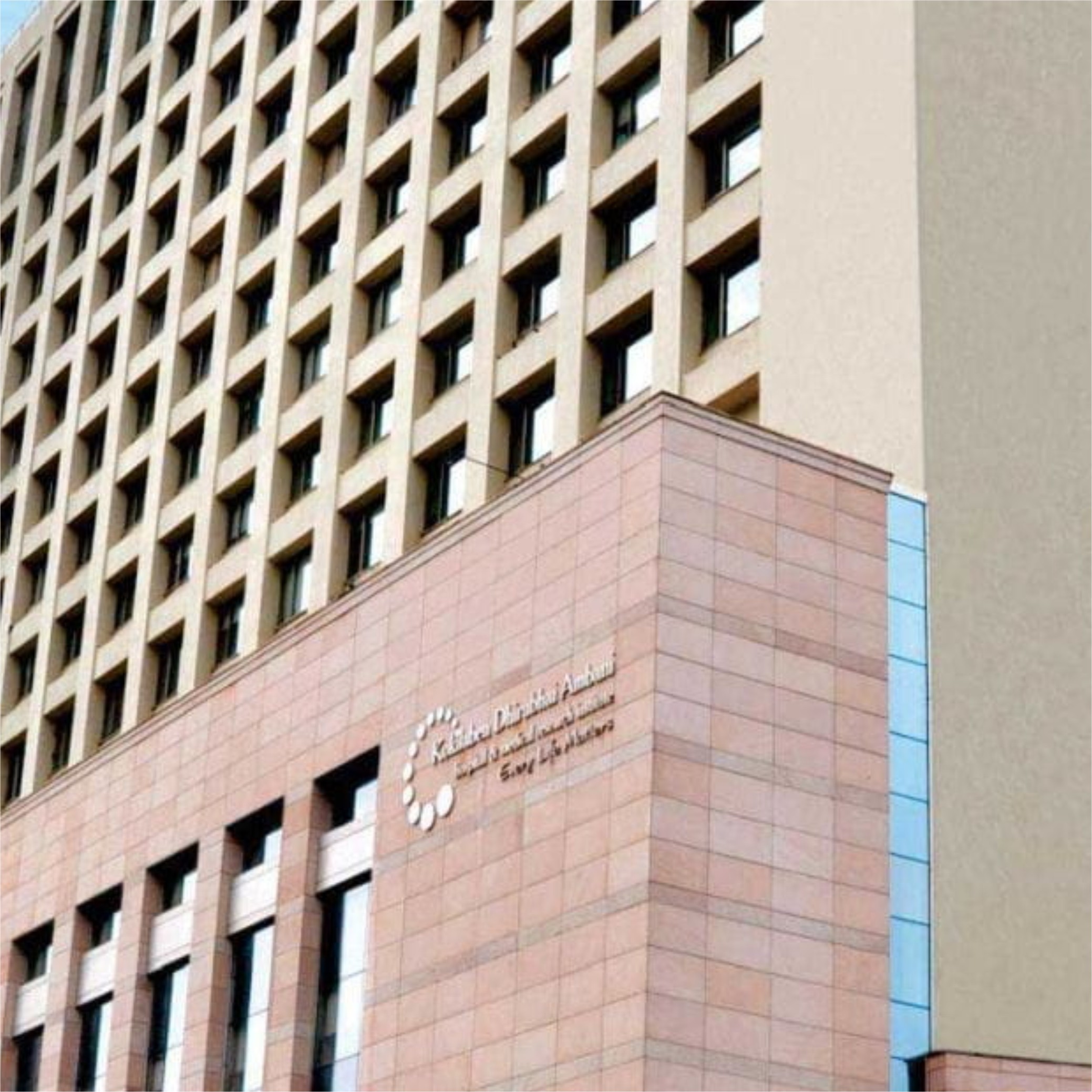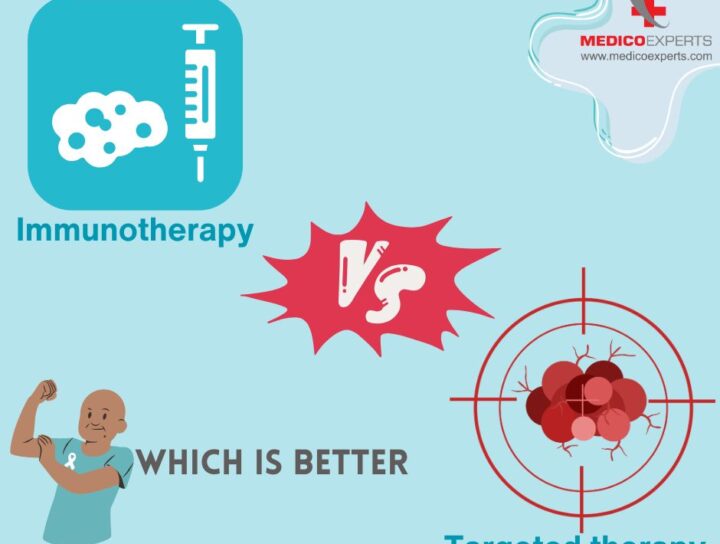Beat cancer with best and advance cancer treatment in India
Cancer is the leading cause of death worldwide. It resulted in the deaths of nearly ten million people. Cancer deaths are expected to continue to rise around the world. The cancers that kill the most people each year are lung cancer, stomach cancer, liver cancer, colon cancer, and breast cancer.
If you are shocked to learn that you have cancer, the first and most important thing you should know is that it is now very treatable.
Your concerns are genuine, as we witnessed during the days when cancer news was the start of reverse counting. However, thanks to advances in technology for cancer treatment in India both in terms of detection and treatment, today’s outcomes are vastly different from those of a few years ago.
You deserve much more in life, and you can’t lose hope so early. You need to complete your dreams. Don’t even try to visualize the life of your family without you.
Instead, you must focus on the best, the latest, and advanced treatment you can give to yourself.


By beating cancer, you will be able to return to a life full of energy, smiles, and hope, and you will be a winner. You will have sufficient time to enjoy your life and fulfill your ambitions. You’d be playing with your grandchildren one day.
You would once again take care of your near and dear ones. More importantly, you would mentor and motivate the lives of children and teenagers by sharing your own cancer-fighting success story.
You would be as happy and healthy as you truly deserve.
All you need is the right treatment, and you’ll be coming out of this temporary stage of life.
What is cancer?
Cancer is caused by the uncontrolled growth of abnormal cells in any part of the body. These abnormally growing cells are termed cancer cells, malignant cells, or tumor cells. These cells have a tendency to spread to other parts of the body.
Cancer can begin almost anywhere in the trillions of cells that make up our human body. Human cells normally grow and multiply (through a process known as cell division) to form new cells as needed by the body. Cells die when they become old or damaged, and new cells replace them.
This orderly process can sometimes break down, resulting in abnormal or damaged cells growing and multiplying when they shouldn’t. Tumors, which are lumps of tissue, can form from these cells. Tumors may or may not be cancerous. When the growth of these cells is limited to a body part, it’s called benign.
Cancerous tumors can invade nearby tissues and spread to other parts of the body, resulting in the formation of new tumors (a process called metastasis). Malignant tumors are another name for cancerous tumors. Many cancers, including leukemias, form solid tumors, but cancers of the blood do not.
Benign tumors do not invade or spread into nearby tissues. Benign tumors rarely reappear after being removed, whereas cancerous tumors do. However, benign tumors can grow to be quite large. Some, such as benign brain tumors, can cause serious symptoms or even be fatal.
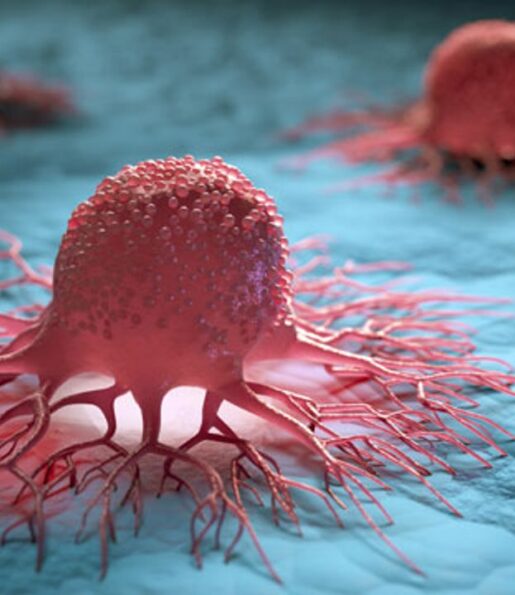
What are the different types of cancer?
There are over 100 different types of cancer. Cancers are usually named after the organs or tissues in which they develop. Lung cancer, for example, begins in the lungs, while brain cancer begins in the brain.
Cancers can also be classified based on the type of cell that caused them, such as epithelial (which cover the inside and outside surfaces of the body) or squamous (thin, flat cells that look like fish scales) cells.
Cancers that start in specific types of cells fall into the following categories:
The most common type of cancer is carcinoma. They are formed by epithelial cells, which cover both the inside and outside surfaces of the body. Many different types of epithelial cells exist, and when viewed under a microscope, they often have a column-like shape.
Carcinomas that start in different types of epithelial cells have different names:
- Adenocarcinoma: Adenocarcinoma is a type of cancer that develops in epithelial cells that produce mucus or fluids. Breast, colon, and prostate are adenocarcinomas
- Basal cell carcinoma: Basal cell carcinoma is cancer that starts in the epidermis, a person’s outer layer of skin, in the lower or basal (base) layer.
- Squamous cell carcinoma: Squamous cell carcinoma is a type of skin cancer that develops in squamous cells, which are epithelial cells found just beneath the skin’s surface. Many other organs, such as the stomach, intestines, lungs, bladder, and kidneys, are lined with squamous cells.
- Transitional cell carcinoma: Transitional cell carcinoma is cancer that develops in the transitional epithelium, or urothelium, a type of epithelial tissue. The bladder, ureters, and a portion of the kidneys (renal pelvis), as well as the linings of a few other organs, are made up of many layers of epithelial cells that can grow and shrink. Cancers of the bladder, ureters, and kidneys are known as transitional cell carcinomas.
Sarcomas are cancers that form in the body’s soft tissues, including muscle, fat, blood vessels, lymph vessels, and fibrous tissue (such as tendons and ligaments).
The most common bone cancer is osteosarcoma.
Liposarcoma, Leiomyosarcoma, Kaposi sarcoma, malignant fibrous histiocytoma, and dermatofibrosarcoma protuberans are the most common soft tissue sarcomas.
Leukemias are cancers that begin in the blood-forming tissue of the bone marrow. Solid tumors are not formed by these cancers. In the blood and bone marrow, large numbers of abnormal white blood cells (leukemia cells and leukemic blast cells) build-up, crowding out normal blood cells.
A lack of normal blood cells can make it difficult for the body to get oxygen to its tissues, control bleeding, and fight infections.
Leukemia is classified into four types based on whether it is acute or chronic, or it is myeloid or lymphocytic:
- Acute myeloid (or myelogenous) leukemia (AML)
- Chronic myeloid (or myelogenous) leukemia (CML)
- Acute lymphocytic (or lymphoblastic) leukemia (ALL)
- Chronic lymphocytic leukemia (CLL)
You can get more information on Blood cancer treatment in India
Lymphoma is cancer that starts in the lymphocytes and spreads throughout the body (T cells or B cells). These are white blood cells that are part of the immune system and fight disease. Abnormal lymphocytes accumulate in lymph nodes and lymph vessels, as well as other organs, in lymphoma.
Lymphoma is divided into two types: non-Hodgkin lymphoma and Hodgkin lymphoma
Multiple myeloma is cancer that develops in the plasma cells of white blood cells. Antibodies that recognize and attack germs are produced by healthy plasma cells, which aid in the fight against infections.
Multiple myeloma causes cancerous plasma cells to accumulate in the bone marrow, crowding out healthy blood cells. Cancer cells, rather than producing beneficial antibodies, produce abnormal proteins that can cause problems.
Melanoma is a disease in which melanocytes (cells that color the skin) develop malignant (cancer) cells
Melanomas most commonly develop on the skin, but they can also develop in other pigmented tissues, such as the eye.
Tumors of the brain and spinal cord are in a variety of shapes and sizes. These tumors are named after the type of cell that gave birth to the tumor and the location in the central nervous system where the tumor first appeared.
Brain tumors can be benign (not cancer) or malignant (cancer).
- Germ Cell Tumors: Germ cell tumors are types of tumors that start in the cells that produce sperm or eggs. These tumors can be benign or malignant and can appear almost anywhere on the body.
- Neuroendocrine Tumors: Neuroendocrine tumors arise when cells in the nervous system release hormones into the bloodstream in response to a signal. These tumors, which produce higher-than-normal levels of hormones, can result in a variety of symptoms. Neuroendocrine tumors can be either benign or cancerous.
- Carcinoid Tumors: Neuroendocrine tumors, such as carcinoid tumors, are a type of neuroendocrine tumor. They are slow-growing tumors that most commonly occur in the gastrointestinal tract (most often in the rectum and small intestine). Carcinoid tumors can spread to the liver or other parts of the body, secreting chemicals like serotonin and prostaglandins, resulting in carcinoid syndrome.
Types of cancer treated in India
Cancer is a wide term for a large group of diseases caused by rapidly dividing and spreading abnormal cells to other tissues and organs. Cancers are named for the place they originate in and the type of cell they are made of, even though they spread to other parts of the body.
Following are the commonly noticed cancer types:
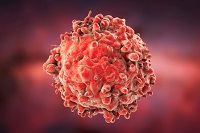
Blood cancers affect blood cell development and function. Most of these cancers begin in the bone marrow where the blood is formed. Blood cancer has three major types: leukemia, lymphoma, and myeloma.
These cancers cause your bone marrow and lymphatic system to produce blood cells that do not function as well as they should. They all affect various types of white blood cells and act differently.
Blood cancer can be effectively treated by bone marrow transplantation.
Please visit to know more about blood cancer treatment in India
To learn more about do visit bone marrow transplant in India page.

Breast cancer is when the cell in the breast grow uncontrollably. Typically, breast cancer cells form a tumor that is often seen on an x-ray and feels like a lump. Breast cancer occurs almost exclusively in women, but also in men.
Breast-conserving surgery (BCS) like lumpectomy or segmental mastectomy have proven better results and much more successful outcome.
The biggest advantage of BCS is that the women can retain their breasts however, radiation therapy will also be required for complete cure.
For more information visit – breast cancer treatment in India
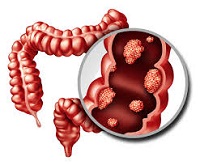
Colon cancer is cancer that starts in the large intestine (colon). The colon is the end of the digestive tract. Colon cancer can be treated effectively by many medications available, including surgery, radiation therapy, and drug therapies, such as chemotherapy, laser therapy, and immunotherapy.
Colon cancer is sometimes referred to as colorectal cancer, a concept that combines colon cancer with rectal cancer which occurs in the rectum.
Visit to read more – colon cancer treatment in India
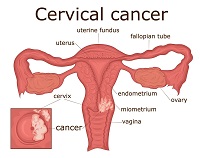 The uterine cervix is the lower part of the uterus (womb) of a female that connects the uterus to the vagina. Cervical cancer develops when the cervix cells multiply abnormally and invade the body’s other tissues and organs.
The uterine cervix is the lower part of the uterus (womb) of a female that connects the uterus to the vagina. Cervical cancer develops when the cervix cells multiply abnormally and invade the body’s other tissues and organs.
Operation and radiation therapy are the most commonly used therapies for cervical cancer treatment. There are also situations when radiation and biological treatment is used.
For more detailed information on cervical cancer treatment in India,
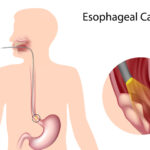
When cancer cells form in the esophagus, a tube-like structure that connects your throat to your stomach, you have esophageal cancer. The esophagus transports food from the mouth to the stomach. Cancer begins in the inner layer of the esophagus and can spread to other parts of the body and other layers of the esophagus (metastasis).
Treatment may include surgery, radiation, chemotherapy, immunotherapy, targeted therapy, or a combination of these.
For more details on Esophageal cancer treatment in India,
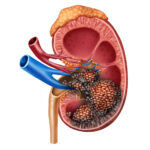
Kidney cancer, also known as renal cancer, is a disease in which the cells of the kidney become malignant (cancerous) and grow out of control, resulting in a tumor. Almost all kidney cancers begin in the lining of the kidney’s tiny tubes (tubules). Renal cell carcinoma is the name for this type of kidney cancer.
The good news is that most kidney cancers are discovered before they spread to other organs (metastasize).
Cancers that are detected early on are also easier to treat. Surgery, chemotherapy, and radiation therapy are the most commonly used treatment for kidney cancer.
For more details on kidney cancer treatment in India,
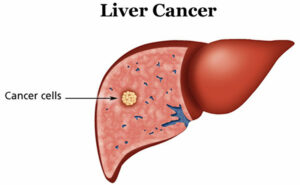
Cancer that is formed in the liver cells is termed liver cancer. Cancer spreading to the liver is more common than cancer which begins in the cells of the liver. Cancer that starts in another area of the body — like the colon, lung, or breast — and then spreads to the liver is called metastatic cancer instead of liver cancer.
For more information on liver cancer and treatment options please visit liver cancer treatment in India
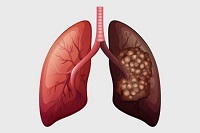
Lung cancer is a disease that uncontrollably causes cells to divide in the lungs, triggering tumor growth which decreases an individual’s breathing capacity. Nevertheless, it may be difficult to identify lung cancer at its earliest stages, as the symptoms may be close to those of a respiratory infection, or there may be no symptoms at all.
Detecting early lung cancer can prove life-saving. This is because lung cancer cells can migrate to other parts of the body before they are found in the lungs by a physician. Lung cancer therapies depend on the location and stage of the care, as well as the individual’s overall health. The most popular approach to treating lung cancer is surgery and radiation, but other therapies are available.
For more information please visit on lung cancer treatment in India
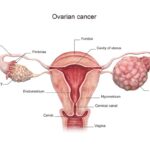
On either side of the uterus, the ovaries are small almond-shaped organs. The ovaries are where eggs are produced. Ovarian cancer can develop in a variety of locations on the ovary.
Ovarian cancer can begin in the germ, stromal, or epithelial cells of the ovary. Germ cells are the precursors to eggs. The ovary’s substance is made up of stromal cells. The ovary’s outer layer is made up of epithelial cells.
The most common treatment option may include Surgery, Chemotherapy.
For more information please visit on Ovarian cancer treatment in India, page.

Prostate cancer is characterized by uncontrolled (malignant) cell growth in the prostate gland. During the early stages of prostate cancer, there are often no signs, but PSA testing can detect changes that may indicate cancer.
Prostate cancer can be effectively treated by robotic prostatectomy, cryotherapy, radiation therapy, etc.
For more details on prostate cancer treatment in India,
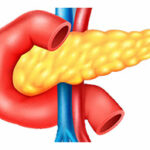
Changes (mutations) in the pancreas cells cause them to multiply out of control, resulting in pancreatic cancer. It’s possible to end up with a mass of tissue. This mass can be benign (not cancerous) in some cases. The mass in pancreatic cancer, on the other hand, is cancerous (cancerous).
Pancreatic cancer treatment is largely decided by cancer’s stage and location, as well as your overall health and personal preferences. Treatment may include surgery, radiation, chemotherapy, or a combination of these.
For more details on Pancreas cancer treatment in India,
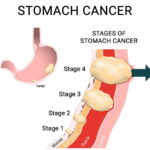
Cancer cells in stomach cancer (also known as gastric cancer) usually start on the inner lining of the stomach walls and progress deeper into the stomach walls as cancer progresses. The tumor could spread to nearby organs such as the liver and pancreas. In many cases, surgery can be avoided.
Chemotherapy and radiation therapy are the most commonly used therapies for stomach cancer treatment.
For more details on Stomach cancer treatment in India,

Thyroid cancer is a type of cancer that develops in the thyroid gland, which is part of the endocrine system. Hormones produced by the thyroid gland regulate body temperature, heart rate, and metabolism. The most common types of thyroid cancer, papillary and follicular, respond well to treatment. The majority of thyroid cancers are curable.
The size of the tumor and whether cancer has spread determine the treatment options for thyroid cancer.
For more details on Thyroid cancer treatment in India,
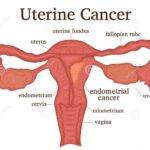
Endometrial cancer (common) and uterine sarcoma (rare) are the two types of uterine cancer. Endometrial cancer is frequently curable. Uterine sarcoma is more aggressive than other types of uterine cancer.
Treatment may include Surgery, Radiation therapy, Chemotherapy, Hormone therapy, Targeted therapy, or a combination of these.
For more details on Uterine cancer treatment in India,
Cutting-edge radiation technology and advanced surgical solutions
MedicoExperts along with the top onco-surgeons and the best of hospitals in India offers all-inclusive cancer care and treatment packages including cutting-edge technology, state-of-the-art infrastructure, innovative advanced technologies like Cyberknife, Robotic surgery, Proton Therapy, and True Beam STX Radiosurgery. No matter what type of cancer plagues you, we can find a cure for it!
Proton therapy is a radiation therapy that uses tiny particles called protons.
Protons are excellent cell killers, but because protons deliver their energy, proton therapy does not damage as much healthy tissue as photon therapy.
Therefore, a higher dose of radiation can be targeted at the tumor without affecting many normal healthy cells.
Proton Therapy has many advantages, including:
- Targets tumors and cancer cells with precision and minimal exit dose.
- Reduces overall toxicity.
- Reduces the probability and/or severity of short- and long-term side effects on surrounding healthy tissues and organs (e.g. minimizes the likelihood of secondary tumors caused by treatment).
- Precisely delivers an optimal radiation dose to the tumor.
- Can be used to treat recurrent tumors, even in patients who have already received radiation.
- Improves quality of life during and after treatment.
- Increases the long-term, progression-free survival rates for certain types of tumors.
What is the success rate of Proton therapy?
Proton therapy is at least as effective as conventional radiation therapy but with fewer side effects. In some cases, proton therapy is not only the best but also the only option. It has been proven to be successful in curing or controlling many cancers when used appropriately. Success after radiation therapy depends on the type and stage of cancer treated. In certain cancers like chordomas, brain tumors, or liver cancers, control rates with proton therapy can be as high as 85-90%.
What type of cancer can be treated by Proton Therapy?
Proton therapy can be effective in treating many types of tumors, including tumors of the brain, head and neck, central nervous system, lung, prostate, and gastrointestinal system. Proton therapy is often the preferred option for treating solid tumors in children because protons can be controlled precisely, so there is less radiation of normal tissues, helping prevent serious complications and lessening the chance of secondary tumors. Proton beam therapy is the preferred standard for many tumors, including:
- Ocular tumors, including intraocular melanomas
- Tumors that approach or are located at the base of skulls such as Chordoma and Chondrosarcomas
- Spine tumors – Primary or metastatic
- Hepatocellular cancer
- Pediatric solid tumors – primary or benign tumors in children
- Brain and spinal cord tumors – Malignant and benign
- Advanced and/or unresectable head and neck cancers such as Cancers of the paranasal sinuses and other accessory sinuses; e.g., adenoid cystic carcinoma, Advanced Nasopharyngeal cancer, and Advanced cancer of the buccal mucosa
- Retroperitoneal sarcomas
- Re-irradiation cases- where radiation is being considered for the second or third time to the same site
The above sites have sufficient evidence available currently that there is a definite benefit in using proton therapy. However, many other cancers may also have a benefit when proton therapy is used, especially when compared to conventional X-ray therapy. These include:
- Oesophageal cancers
- Breast Cancer
- Oropharynx Cancer
- Salivary Gland cancers
- Lung Cancer
- Prostate Cancer
- Sarcomas
- Tumors in the base of the skull
Please visit the proton therapy page for more information.
The CyberKnife System is a non-invasive treatment for cancerous and non-cancerous tumors and other conditions where radiation therapy is indicated.
It is used to treat conditions throughout the body, including the prostate, lung, brain, spine, head and neck, liver, pancreas, and kidney. It can be an alternative to surgery or for patients who have inoperable or surgically complex tumors.
CyberKnife treatments are typically performed in 1 to 5 sessions. The CyberKnife System has more than two decades of clinical proof and has helped thousands of cancer patients.
Cyberknife treatment advantages
Cyberknife treatment offers many benefits over surgery and other forms of radiation, including:
Unrivaled accuracy: CyberKnife treats benign and cancerous tumors from more than 1,400 angles without harming the surrounding healthy tissue and organs.
No hospital stay: CyberKnife therapy is performed as an outpatient procedure so you can return home the same day you receive treatment.
No pain, anesthesia, or recovery time: CyberKnife is not a surgical procedure, so you won’t need to worry about losing blood, caring for incisions, or taking medication.
Faster treatment completion: You will receive one to five treatments over one to two weeks, whereas traditional radiation may require over 40 visits.
Excellent outcomes: Proven results show CyberKnife is as effective at treating most early-stage tumors as surgery and is superior to traditional radiation therapy.
Types of Cancer Treated with CyberKnife
CyberKnife is commonly used to treat inoperable or complex tumors. It is an excellent alternative for patients who cannot or do not want to undergo surgery and for patients who have tumors in very sensitive or hard-to-reach places, including the following:
- Brain, Spine, and Skull-Base Tumors
- Trigeminal Neuralgia
- Head and Neck Cancer
- Lung Cancer
- Metastatic Cancer
- Pancreatic Cancer
- Prostate Cancer
Please visit the Cyberknife page for more information.
Robotic surgery, or robot-assisted surgery, allows doctors to perform many types of complex procedures with more precision, flexibility, and control than is possible with conventional techniques.
Robotic surgery is usually associated with minimally invasive surgery — procedures performed through tiny incisions.
Advantages of Robotic surgery
Robotic surgery makes minimally invasive surgery possible. The benefits of minimally invasive surgery include:
- Fewer complications, such as surgical site infection
- Less pain and blood loss
- Quicker recovery
- Smaller, less noticeable scars
Types of Cancer Treated with Robotic surgery
- Colon and Rectal cancer
- Endometrial [Uterine] and cervical cancer
- Esophageal [Food pipe] and stomach cancer
- Early cases of pancreatic cancer
- Kidney, bladder, and prostate cancer
- Throat cancer
- Tongue cancer
- Tonsil cancer
Please visit the Robotic Surgery page for more information.
TrueBeam STx is an advanced linear accelerator and radiosurgery treatment system that allows doctors to target hard-to-reach tumors.
TrueBeam STX treats cancer anywhere in the body where radiation treatment is indicated, including lung, breast, prostate, and head and neck cancers.
TrueBeam STX system is the fastest in treatment speed, precision, and simplicity to accurately target tumors of the brain, spine, lung, and other areas that are typically difficult to treat surgically.
TrueBeam STX has helped pioneer new stereotactic treatment technologies in use to treat cancer and other conditions.
Radiosurgery treatments take advantage of recent advances in proven technologies, including:
- Imaging with cone–beam CT
- Motion management
- Precision beam delivery with RapidArc
- Treatment planning through Eclipse
- Automated patient-positioning technologies
Advantages Of TrueBeam STX
- More accurate radiation targeting and tracking of tumors, especially in hard-to-reach areas.
- Improved effectiveness of radiation treatment.
- Shorter treatment times.
- Fewer complications and side effects.
- More treatment options for people who aren’t eligible for traditional surgery.
Types of Cancer Treated with TrueBeam STX
- Kidneys cancer
- Brain cancer (benign and malignant)
- Head and neck cancer
- Liver cancer
- Lung cancer
- Pancreatic cancer
- Prostate cancer
- Spinal cancer
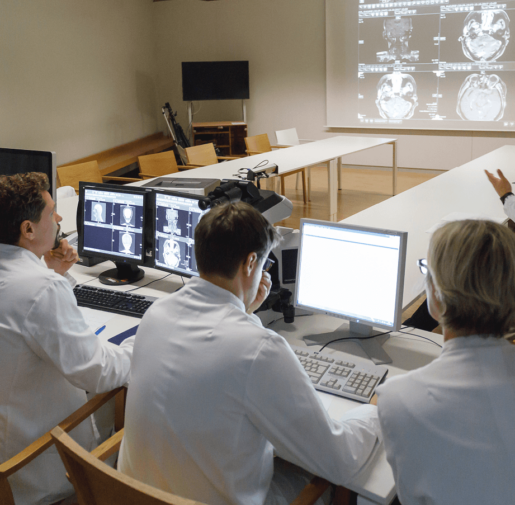
MedicoExpert’s Approach to zero down the right treatment plan in India
Cancer care is becoming increasingly complex and often needs skills from multiple disciplines. The latest and unique approach enlists the multidisciplinary services of medical, surgical, and radiation oncologists who will provide you with a holistic treatment plan that will ensure the best possible outcome.
Globally known as ‘Tumour Board’ – a team of highly qualified cancer experts who will present a comprehensive evaluation of your medical case and recommend the best treatment approach, a mix of treatment protocols like chemotherapy, radiation therapy, and/or surgery.
Tumour board reviews provide a multidisciplinary approach to cancer treatment involving doctors of multiple specialties to evaluate and address patients’ medical conditions and diagnoses to achieve the best possible outcomes.
Cost of cancer treatment in India
The exorbitant cost of cancer treatment is one of the burdens that come with cancer. With MedicoExperts you can be assured of affordability and cost-efficiency without compromising the quality of the treatment offered.
The cost of a PET scan in India starts from USD 300 (INR 21,000).
Based on medical evaluation and diagnosis, a specially curated treatment plan will be provided to specifically target cancer you have.
With comprehensive and well-researched information collected over the years from our patient experience of 27 countries and 8 years of outstanding patient care, we can confidently boast of about 90% success rate with the revival of patients’ health and wellbeing.

Best hospital for cancer treatment in India
The top hospitals in India are equipped with cutting-edge technology and the latest innovation to provide the best cancer care. Here is a list of the best cancer hospitals in India which provide the best cancer treatment and surgery:

MedicoExperts is a Global virtual hospital which is established to offer quality healthcare services at affordable pricing without compromising the success rates of the treatment.
MedicoExperts is having a network of highly experienced super specialist doctors and well equipped hospitals across the globe and offering second opinion through online video consultation and surgical interventions through its empanelled super specialist doctors at its network hospitals in 17 countries from 3 continents.
By the virtue of its approach and model, MedicoExperts is successfully achieve to deliver
- Latest and most advanced treatments with success rates of international benchmarks.
- Multiple cost options depending upon the hospital facilities, with the same doctor.
- Treatment option in multiple cities/state/countries.
- Trust and peace of mind.
Most suitable for patients who are looking for:-
- Planned Surgeries and treatment from most experienced doctors and at multiple cost options as per hospital facilities with best possible outcomes.
- Second Opinion from expert doctors.
- Complex cases involving multi specialities
- International patients looking for treatment from Indian doctors
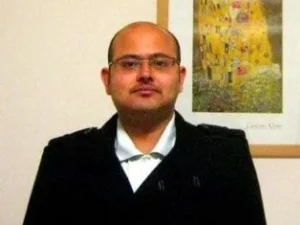
Author Bio
Dr. Subhamoy Mukherjee is a molecular oncologist with experience working with genomic profiles. He has several years of experience in scientific writing. He takes a strong interest in making people aware of different treatment approaches in cancer, and acute and chronic diseases. He also has an interest in innovative approaches for treating different mental and physical illnesses. View all posts by Dr. Subhamoy Mukherjee














